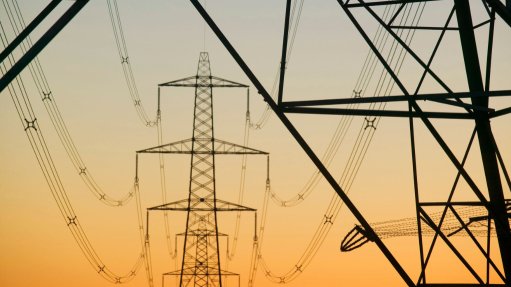Be mindful not to interpret 2021 economy windfall as long-term prosperity – Roux
Ahead of Finance Minister Enoch Godongwana’s budget speech on February 23, Stellenbosch University Business School economist Andre Roux says it would be “premature and foolhardy” to interpret economic growth in 2021, and moderate fiscal easing, as a preamble to better times.
South Africa’s economy is thought to have grown by more than 4.5% in 2021 – the highest yearly increase in more than a decade.
As such, Roux says Godongwana should be able to meet spending demands, including the extension of the South African Social Security Agency payments, in the year ahead without widening the budget deficit, or resorting to punitive upward adjustments to tax rates.
“In fact, changes in the corporate and value-added tax rates seem unlikely, while a modicum of personal income tax relief is possible [through] an adjustment of the respective tax brackets.
“As always, expect sin taxes to rise; although, in the light of the rapidly rising petrol price, the fuel tax increase will hopefully be more constrained,” says Roux.
He adds that arithmetic is a major explanation for the “seemingly” impressive 2021 global growth performance, as increases in output bounced back from the much lower base recorded in 2020.
“Already, growth forecasts for this year and next suggest a slowing in the rate of expansion. Locally, a resumption of a low growth trajectory of 2% or lower is projected [this year] and [in] 2023.
“The South African economy might only recover to its pre-pandemic gross domestic product (GDP) per capita, and that was when the economy was already in the earlier stages of a recession, by the end of 2024,” says Roux.
DEFICITS
Fundamentally, he says, South Africa’s economy is staggering under the weight of a variety of deficits, but that not all deficits, and debt, are pernicious.
For instance, Roux explains that when used for the right reasons, such as financing economic infrastructure, government debt can improve the standard of living and development in a country.
“By building new roads, railway lines, bridges and dams, and by improving education and providing pensions, the future potential output of the economy is enhanced.
“Similarly, if households incur debt to acquire housing stock or transport goods, they are earning a long-term yield in the form of accommodation and transport,” he says.
In addition to this, Roux highlights a paradox in thrift (savings), whereby an increase in total saving leads to a decrease in total demand, and a corresponding slowdown in production.
“Thus, while individual saving is deemed to be a virtue, collective saving [by all households] may be harmful to the economy. In fact, in the event of the latter, debt countervails saving by recycling unspent funds into the circular flow of income.”
Nonetheless, repeated and widening deficits can indeed be harmful, he says.
Governments, for instance, may be tempted to assume increasing levels of debt because in the short term it may make them popular with voters, especially as it means that they do not have to raise tax.
However, Roux cautions that this kind of thinking is flawed on a number of levels. “If the level of debt consistently rises at a faster rate than the GDP, the ratio of public debt-to-GDP could reach a critical level where investors in government bonds (creditors) will demand a higher interest rate to compensate for higher risk.”
As interest rates rise, it becomes more expensive to refinance existing debt and to finance new debt.
Further, since more government revenue has to be allocated to the servicing of debt, less is available for crucial government services.
SOLUTION?
To raise the investment rate by more than ten percentage points, he says, several measures need to be implemented by government, including substantially lowering consumption expenditure by government and lowering the tax burden on taxpayers.
Roux also warns of profound swings on the current account of the balance of payments. “A current account surplus may be recorded sporadically on the back of transient surges in commodity prices, such as in 2021.”
However, he says South Africa’s economy cannot rely on windfalls, because current account deficits are more likely to persist, given the structural obstacles to South Africa’s competitiveness, such as high labour costs and infrastructure and logistical constraints.
Also required to boost investment rates is a significant decline in the share of household consumption spending. “This is an imperative, but clearly an unpalatable one, since it implies a short-term sacrifice for the sake of longer-term dividends,” says Roux.
Nonetheless, notwithstanding the commodity price windfall of 2021 and relative buoyancy of economic activity, providing a temporary fiscal respite, South Africa is “flirting” with fiscal adversity, he says.
“The decade-long accumulation of government debt has elevated the government debt-to-GDP ratio to unprecedented levels. There is now a very real risk that in the years ahead social grants, civil service wages and debt servicing costs will absorb the bulk of government revenue,” says Roux.
Article Enquiry
Email Article
Save Article
Feedback
To advertise email advertising@creamermedia.co.za or click here
Announcements
What's On
Subscribe to improve your user experience...
Option 1 (equivalent of R125 a month):
Receive a weekly copy of Creamer Media's Engineering News & Mining Weekly magazine
(print copy for those in South Africa and e-magazine for those outside of South Africa)
Receive daily email newsletters
Access to full search results
Access archive of magazine back copies
Access to Projects in Progress
Access to ONE Research Report of your choice in PDF format
Option 2 (equivalent of R375 a month):
All benefits from Option 1
PLUS
Access to Creamer Media's Research Channel Africa for ALL Research Reports, in PDF format, on various industrial and mining sectors
including Electricity; Water; Energy Transition; Hydrogen; Roads, Rail and Ports; Coal; Gold; Platinum; Battery Metals; etc.
Already a subscriber?
Forgotten your password?
Receive weekly copy of Creamer Media's Engineering News & Mining Weekly magazine (print copy for those in South Africa and e-magazine for those outside of South Africa)
➕
Recieve daily email newsletters
➕
Access to full search results
➕
Access archive of magazine back copies
➕
Access to Projects in Progress
➕
Access to ONE Research Report of your choice in PDF format
RESEARCH CHANNEL AFRICA
R4500 (equivalent of R375 a month)
SUBSCRIBEAll benefits from Option 1
➕
Access to Creamer Media's Research Channel Africa for ALL Research Reports on various industrial and mining sectors, in PDF format, including on:
Electricity
➕
Water
➕
Energy Transition
➕
Hydrogen
➕
Roads, Rail and Ports
➕
Coal
➕
Gold
➕
Platinum
➕
Battery Metals
➕
etc.
Receive all benefits from Option 1 or Option 2 delivered to numerous people at your company
➕
Multiple User names and Passwords for simultaneous log-ins
➕
Intranet integration access to all in your organisation

















